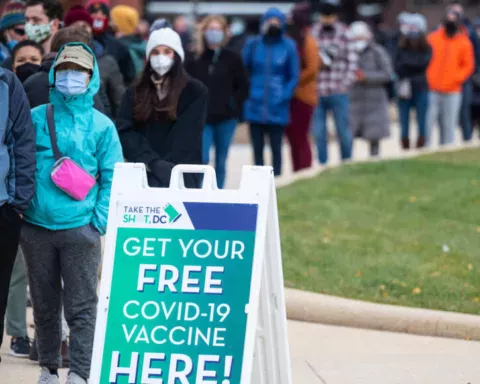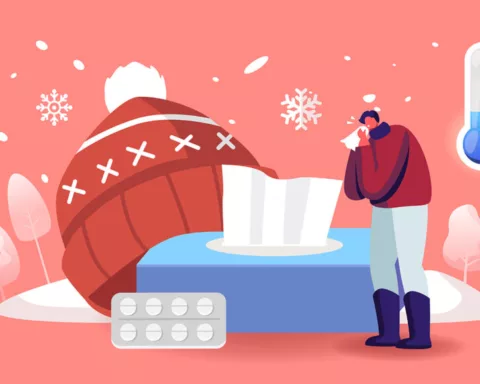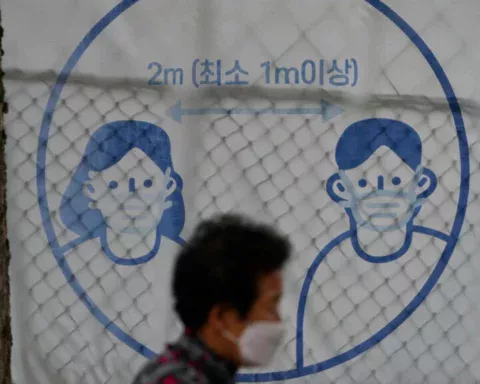Safer Activities for You and Your Family
- To maximize protection from the Delta variant and prevent possibly spreading it to others, wear a mask indoors in public if you are in an area of substantial or high transmission.
- Wearing a mask is most important if you have a weakened immune system or if, because of your age or an underlying medical condition, you are at increased risk for severe disease, or if someone in your household has a weakened immune system, is at increased risk for severe disease, or is unvaccinated. If this applies to you or your household, you might choose to wear a mask regardless of the level of transmission in your area.
- You should continue to wear a mask where required by laws, rules, regulations, or local guidance.
COVID-19 vaccines are effective at protecting you from getting sick. Based on what we know about COVID-19 vaccines, people who have been fully vaccinated can do things that they had stopped doing because of the pandemic.
These recommendations can help you make decisions about daily activities after you are fully vaccinated. They are not intended for healthcare settings.
Have You Been Fully Vaccinated?
In general, people are considered fully vaccinated: ±
- 2 weeks after their second dose in a 2-dose series, such as the Pfizer or Moderna vaccines, or
- 2 weeks after a single-dose vaccine, such as Johnson & Johnson’s Janssen vaccine
If you don’t meet these requirements, regardless of your age, you are NOT fully vaccinated. Keep taking all precautions until you are fully vaccinated.
If you have a condition or are taking medications that weaken your immune system, you may NOT be protected even if you are fully vaccinated. You should continue to take all precautions recommended for unvaccinated people until advised otherwise by your healthcare provider.
What You Can Do
If you’ve been fully vaccinated:
- You can resume activities that you did prior to the pandemic.
- To reduce the risk of being infected with the Delta variant and possibly spreading it to others, wear a mask indoors in public if you are in an area of substantial or high transmission.
- You might choose to wear a mask regardless of the level of transmission if you have a weakened immune system or if, because of your age or an underlying medical condition, you are at increased risk for severe disease, or if a member of your household has a weakened immune system, is at increased risk for severe disease, or is unvaccinated.
- If you travel in the United States, you do not need to get tested before or after travel or self-quarantine after travel.
- You need to pay close attention to the situation at your international destination before traveling outside the United States.
- You do NOT need to get tested before leaving the United States unless your destination requires it.
- You still need to show a negative test result or documentation of recovery from COVID-19 before boarding an international flight to the United States.
- You should still get tested 3-5 days after international travel.
- You do NOT need to self-quarantine after arriving in the United States.
- If you’ve been around someone who has COVID-19, you should get tested 3-5 days after your exposure, even if you don’t have symptoms. You should also wear a mask indoors in public for 14 days following exposure or until your test result is negative. You should isolate for 10 days if your test result is positive.
What You Should Keep Doing
For now, if you’ve been fully vaccinated:
- You will still need to follow guidance at your workplace and local businesses.
- If you travel, you should still take steps to protect yourself and others.
- Wearing a mask over your nose and mouth is required on planes, buses, trains, and other forms of public transportation traveling into, within, or out of the United States and while indoors at U.S. transportation hubs such as airports and stations. Travelers are not required to wear a mask in outdoor areas of a conveyance (like on open deck areas of a ferry or the uncovered top deck of a bus).
- Fully vaccinated international travelers arriving in the United States are still required to get tested 3 days before travel by air into the United States (or show documentation of recovery from COVID-19 in the past 3 months) and should still get tested 3-5 days after their trip.
- You should still watch out for symptoms of COVID-19, especially if you’ve been around someone who is sick. If you have symptoms of COVID-19, you should get tested and stay home and away from others. If your test is positive, isolate at home for 10 days.
- People who have a condition or are taking medications that weaken the immune system, should continue to take all precautions recommended for unvaccinated people until advised otherwise by their healthcare provider.
What We Know
- COVID-19 vaccines are safe and effective at preventing COVID-19, including severe illness and death.
- COVID-19 vaccines are effective against severe disease and death from variants of the virus that causes COVID-19 currently circulating in the United States, including the Delta variant.
- Infections happen in only a small proportion of people who are fully vaccinated, even with the Delta variant. When these infections occur among vaccinated people, they tend to be mild.
- If you are fully vaccinated and become infected with the Delta variant, you can spread the virus to others.
- People with weakened immune systems, including people who take immunosuppressive medications, may not be protected even if fully vaccinated.
What We’re Still Learning
- How long COVID-19 vaccines can protect people.
Want to learn more about these recommendations? Read our expanded Interim Public Health Recommendations for Fully Vaccinated People.
± This guidance applies to COVID-19 vaccines currently authorized for emergency use by the U.S. Food and Drug Administration: Pfizer-BioNTech, Moderna, and Johnson & Johnson (J&J)/Janssen COVID-19 vaccines. This guidance can also be applied to COVID-19 vaccines that have been listed for emergency use by the World Health Organization (e.g. AstraZeneca/Oxford).






